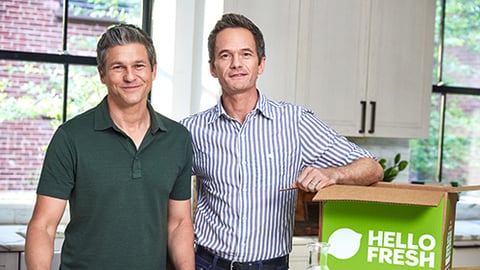HelloFresh Commits to Ambitious Carbon Reduction Goals
After achieving a FY22 revenue milestone, meal kit provider HelloFresh has released its annual “2022 Sustainability Report” (Non-Financial Report) and revealed a new commitment to set science-based emissions reduction targets.
“As a global food solutions group, we recognize the important contribution we can and must make in driving sustainable progress on climate change,” said Jeffrey Yorzyk, senior director of sustainability, HelloFresh US. “By setting science-based targets, we are helping to do our part in reducing harmful greenhouse-gas emissions in an effort to limit global warming to 1.5 degrees or less.”
The Science Based Targets initiative (SBTi) is a global body enabling businesses to set ambitious emissions reduction targets in line with the latest climate science and Paris Agreement goals. HelloFresh will work with SBTi to develop and validate its targets before the end of 2024.
As mentioned in its sustainability report, HelloFresh continues to make operations more energy-efficient and to transition to renewable energy. The share of green energy consumed in HelloFresh’s distribution centers and offices in 2022 increased to 53%, from 50% in 2021 and 35% in 2020.
Specifically in the United States, HelloFresh piloted a new software that optimizes energy use from refrigeration systems within its distribution centers. Refrigeration is the largest consumer of electricity within its operating facilities, and HelloFresh is now rolling out the software across all U.S. facilities. HelloFresh US has also sourced renewable electricity for 100% of its facilities since 2020.
HelloFresh’s continued efforts in 2022 led to a 50% reduction in carbon emissions from its meal kit production facilities per euro revenue compared with a 2019 baseline, which means that the company almost met its ambitious goals for 2022 of a 60% reduction.
Regarding food waste, more than 26 million pounds of unsold edible food was donated to charities in 2022. Compared with a 2019 baseline, the company managed to reduce the food waste sent to landfill or incineration from all meal kit facilities by 42%, which means that the company almost met its ambitious goals for 2022 of a 50% reduction.
HelloFresh’s social impact program within the United States, called Beyond the Box, consists of its Meals with Meanings initiative, which provided 2 million free meal kits in 2022 to individuals in need, with each kit containing HelloFresh ingredients and step-by-step recipe cards to create home-cooked meals. Additionally, through the Beyond the Box program, the company contributed 12.3 million pounds of surplus food in the United States, supporting more than 20 charities across the country.
Going forward, HelloFresh has established separate environmental goals for each of its business verticals:
Meal Kit Business
- Reduce the emissions from the HelloFresh Group’s meal kit production facilities by 66% per euro revenue from a 2019 baseline by the end of 2025
- Reduce food waste from the HelloFresh Group’s meal kit production facilities by 52% per euro revenue from a 2019 baseline by the end of 2025
Other Businesses (represented by ready-to-eat vertical)
- Reduce the emissions from HelloFresh’s other businesses’ production facilities by 30% per euro revenue from a 2021 baseline by the end of 2025.
- Reduce food waste from HelloFresh’s other businesses’ production facilities by 56% per euro revenue from a 2021 baseline by the end of 2025.
Berlin-based HelloFresh operates in 18 international markets. With U.S. offices in New York, Chicago, and Boulder, Colo., the company is No. 50 on The PG 100, Progressive Grocer’s 2022 list of the top retailers of food and consumables in North America. PG also gave the company a 2022 Impact Award for its ESG efforts.






